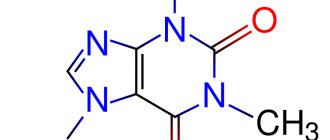Author: Varvara Lyutova
19 July 2021 08:39
Tags: interesting history coffee drinks educational useful plants amazing nearby facts
34062
17
Many of us cannot start the day without a cup of aromatic coffee. These surprising facts about your favorite drink will make your morning cup taste much better - because they prove that coffee is not only delicious, but also healthy in all aspects!
0
See all photos in the gallery
You shouldn't drink coffee right after you wake up.
0
Source:
When you wake up, your body begins to produce the hormone cortisol. It gives you energy and ensures attention. Coffee interferes with the process of cortisol production. Therefore, you should drink coffee not when you wake up, but after waiting for some time - for example, when you get to work. Then a cup of drink will be extremely useful for further ensuring vigor.
Physiology of the process
To understand how coffee can affect a person’s mood, we need to understand the biochemistry of the process. Let's start with the fact that together with a morning cup of aromatic drink, the main active ingredient, the alkaloid caffeine, enters our body.
One of the first to study caffeine was Ivan Petrovich Pavlov (the same scientist who studied conditioned reflexes using dogs as an example). Together with his colleagues, Pavlov found that this substance, in certain doses, stimulates excitation processes in the cerebral cortex, has a positive effect on reaction speed and is a stimulus for strengthening conditioned reflexes. Scientists later discovered that caffeine has a similar molecular structure to adenosine, a substance responsible for stimulating sleep, suppressing alertness and feeling tired. Thanks to this similarity, caffeine can bind to adenosine receptors and have the exact opposite effect - excite nerve cells and stimulate activity. Having become accustomed to receiving “cheap” energy, a person begins to drink coffee more often and in large quantities, and adenosine has to “build” new receptors for itself. As soon as the effect of caffeine ends, adenosine still takes its toll: it occupies all available receptors (of which there are more), the process of excitation is replaced by the process of inhibition, and the body and brain get tired much more than they could be without caffeine.
But not everything is as bad as it seems. When consumed wisely, coffee really improves our mental state and has a positive effect on our overall mood.
Iced coffee costs more
0
Source:
Iced coffee-based drinks are more expensive than hot coffee around the world - and all because they are more difficult to prepare correctly. In addition, iced coffee requires a plastic cup and a straw - otherwise its flavor will not develop as it should. So, if you want to drink coffee quickly and inexpensively, choose hot!
Coffee heals
Don't believe me? But in vain. Caffeine complements the effect of painkillers and enhances the effects of antibiotics. And the drink itself prevents the growth of pathogenic bacteria, especially on the mucous membranes. The reason for this is the high content of tannins and chlorogenic acid. It is this that prevents the proliferation of pathogenic bacteria on tooth enamel. By the way, Italians, who are used to ending every meal with a cup of coffee, usually have teeth in very good condition.
Very encouraging data have been obtained that coffee inhibits the development of tumors, including malignant ones. The drink is now often recommended as part of preventive therapy, especially for women.
Diseases associated with weakening brain functions have become a real problem for the rapidly aging civilized world. Alzheimer's disease and other age-related dementias are associated with the accumulation of protein in brain tissue. Two cups of espresso a day will help prevent this.
Indian doctors recently announced the significant success of coffee in the fight against allergies. Caffeine successfully suppresses histamine activity, which reduces the manifestations of allergies in humans.
The most expensive coffee in the world is made from elephant poop
0
Black Ivory coffee is the most expensive coffee in the world. A cup of this drink costs about $50. This coffee is made from beans passed through the digestive tract of an elephant. Simply put, semi-digested grains are extracted from elephant poop, washed and further processed. No need to be scared! According to reviews from those who have tried it, the drink is indeed very tasty!
Coffee and depression
There are many studies on the effect of caffeine on the likelihood of developing depression. In 2021, Korean physiologists and physicians from Kyung Hee University (Seoul) published the results of a study on how caffeine in coffee and green tea can be used in the prevention of depressive conditions.
Scientists have derived a pattern: active consumption of coffee (more than 2 cups per day) reduces the risk of depression by 32% due to an increase in dopamine production.
It seems that everything is clear: drinking coffee is healthy. But let's return to physiology. Caffeine increases the production of stress hormones - cortisol and norepinephrine and blocks the adenosine system. From sudden jumps, the nervous system is gradually depleted, anxiety and fatigue accumulate. Therefore, drinking more than 3-4 cups of your favorite Americano per day, on the contrary, increases the risk of becoming depressed.
Conclusion: everything is good in moderation! There is no ideal amount of caffeine for each person, but scientists still advise against overuse. 2-3 cups of good coffee a day is enough to ensure excellent mood, concentration and vigor.
How much coffee do you drink?
Coffee is a drink with a rich and very ancient history, long and forever loved by gourmets and connoisseurs from all over the world for its rich and refined taste. Many of us are no longer able to imagine waking up in the morning without a cup of this aromatic drink.
Since ancient times, it has been observed that coffee has certain effects on the people who drink it, on their physical and mental state. There are many studies in the world confirming that coffee has a positive effect on the human body - of course, we should not forget that a sense of proportion is important in everything. But if the real impact of coffee on physical indicators of a person’s health can be easily measured if desired, then this is much more difficult to do with mood, because in this area everything is too individual and subjective.
How coffee improves your mood
However, scientists continue to try to trace and explain the effect of coffee on a person’s mood. Studies have shown that if you drink no more than 5 cups of coffee (one cup contains approximately 75 mg of caffeine), your mood continues to improve steadily throughout the day. And the more coffee a person drinks, the more noticeable the positive changes are felt - the cumulative effect is felt. But it is still not recommended to get carried away with the process - if you drink more than 5 cups of coffee a day, you will most likely get the exact opposite result - nervous tension and, as a result, irritability may appear. In addition, you may become dependent on coffee.
Invigorating coffee
It should also be noted that drinking coffee actively stimulates the brain, makes it wake up, increases alertness and ability to concentrate, increases reaction speed, which automatically increases overall productivity. And after long hours of mental work, a fragrant drink will help relieve fatigue and relieve drowsiness. That's why coffee is so popular as a morning drink and acts as an excellent energy drink. Interestingly, the more tired and distracted a person is, the stronger the positive effects of the drink are. It is worth noting that the invigorating power of coffee somehow causes a certain nervous excitement in a person, but if you drink coffee often, then the excitement from the drink is much less than if you drink it only occasionally. However, you will experience a positive effect in both cases.
Coffee as a cure for depression
Coffee's ability to improve a person's mood and overall well-being has led scientists to suggest that moderate coffee consumption will be an effective tool in the fight against depression. However, scientists still have not come to a consensus on what exactly is in coffee that causes this effect. On the one hand, when talking about coffee, we primarily mean caffeine. It increases the level of dopamine - the hormone of happiness and joy - in the body and has a general tonic effect on a person, thereby reducing the risk of depression. The hormone adrenaline, the production of which is stimulated by caffeine, also has a tonic effect. On the other hand, besides caffeine, coffee contains many other compounds that are equally important. Polyphenols, for example, are powerful antioxidants and improve cognitive function, slow the aging process, promote the formation of new nerve fibers, and theanine, when combined with caffeine, increases alertness. Other antioxidants prevent the oxidation process in the body and prevent the destruction of nerve cells, which reduces the severity of depression and apathy.
In order to find out the real role of these and a number of other elements in coffee, much more research will be required. For us, something else is important. Drinking coffee in moderation has a positive effect on a person’s mood, invigorates and warms. And it’s not only and not so much about improving physical well-being, although it has been proven that drinking coffee reduces the risk of developing many diseases, which in itself is a reason for a good mood. A significant role is also played by the incomparable pleasure we experience when feeling the taste of our favorite drink and even just inhaling the rich aroma. Needless to say, the process of making coffee itself will bring a lot of pleasure to real coffee lovers. With such a drink, and also in good company, no depression is scary.
Coffee for pleasure, health benefits
Coffee as a drink has been known for centuries. Ethiopia is considered the birthplace of coffee, where a plant with red fruits - wild coffee - was first discovered in a province called Kaffa. There is an opinion that the name “coffee” comes precisely from the name of this province, although there are other assumptions on this matter.
Arabian coffee (coffea arabica) grows naturally in the forests of the Ethiopian Highlands at an altitude of 2000 meters. Coffee is a small evergreen tree. It blooms with white fragrant flowers, from which a two-seeded stone fruit is formed by self-pollination.
The original use of dried coffee beans and leaves in Africa was to chew them. Around the 15th century, the Arabs invented the preparation of a coffee drink. Coffee was brought to Europe around the 16th century. The triumphant march of coffee across Europe began in England, where about 3,000 coffee shops were opened at the beginning of the 17th century.
Currently, the countries that consume the most coffee are Scandinavian countries, where coffee arrived at the beginning of the seventeenth century. Long-term statistics on the number of cups of coffee consumed per number of inhabitants of the country states that the largest amount of coffee in the world is drunk in Finland, each coffee lover in Finland drinks an average of 1998 cups per year. Coffee began arriving in Finland in 1720, on a merchant ship from the city of Turku, although coffee appeared in Vyborg back in 1700, and the Lutheran Church declared it a forbidden drink. Modern Finns cannot imagine their life without coffee.
Scientists, constantly studying the properties of food and their effects on the human body, have in recent years come to the conclusion that coffee, this wonderful drink, is beneficial for health.
Coffee protects against diabetes and cancer
According to the results of a 12-year study that included more than 14 thousand adults, women who drink 3-4 cups of coffee a day reduce the risk of type 2 diabetes by 29%. Researchers cannot yet explain the reason for this connection, but they suggest that it is due to the presence of the antioxidant chlorogenic acid in coffee, which helps regulate blood glucose levels. This antioxidant also prevents and inhibits the proliferation of cancer cells in the intestines and liver. By the way, chlorogenic acid is even found in instant coffee.
Coffee does not cause heart disease or hypertension
According to Finnish scientists, the antioxidants contained in coffee protect the heart by strengthening the walls of blood vessels. Their study found no link between coronary heart disease and coffee, even when drinking more than 3 cups of coffee per day. For some people, excessive coffee consumption can cause nausea and exacerbation of gastritis, but in principle, coffee does not have a toxic effect on the body. And according to the results of studies conducted at one of the American universities, no direct connection was found between hypertension and coffee consumption; coffee itself does not cause a noticeable increase in blood pressure.
Coffee improves liver and gastrointestinal function
In the process of studying the relationship between alcohol consumption, obesity and liver disease, the following by-product was obtained. The more the subjects drank coffee and caffeinated drinks, the lower the risk of developing liver disease. The reason for this connection has not yet been established.
Real ground coffee contains tannins, which have a beneficial effect on diseases of the gastrointestinal tract and poisoning, as they have a positive effect on the mucous membrane of the stomach and intestines and prevent the absorption of residual toxic substances into the blood.
Coffee improves your mood
Caffeine stimulates the release of the hormone serotine, which improves mood and relieves aggression. In addition, as Dutch scientists have experimentally proven, coffee doubles the capacity of human memory.
Maximum health benefits of coffee
There are many recipes for making coffee. Gourmets, of course, recognize only the classic taste of natural coffee. At the same time, to extract maximum health benefits from coffee, various flavors, additives and spices are used.
Cinnamon
Cinnamon is the most common spice used to flavor coffee. In stores, cinnamon is usually sold in powder form. To obtain the spice cinnamon, the cinnamon tree (cinnamomum reylunicum) is used, which can be admired in the tropical garden Gardenia in Helsinki. The origins of the cinnamon tree are Sri Lanka, the southwestern parts of India, and South America. This plant is an evergreen tree and in nature reaches a height of 8 to 17 meters. Light flowers with a diameter of about 3 mm. form dense inflorescences. Small fruits develop from the flowers. Cinnamon spice is made from the bark of young shoots. Cinnamon tree bark contains many essential oils. As a medicine, cinnamon has an invigorating effect.
Cardamom
In the Middle Ages, cardamom was sold in pharmacies as a medicine, the secret of its preparation was kept a great secret. According to the ancient science of health, Ayurveda, cardamom greatly promotes activity and clarity of mind, stimulates the heart, and gives a feeling of lightness, calmness and well-being. Modern pharmaceuticals recognize cardamom as an aromatic tonic for the digestive system. It also has a positive effect on the respiratory, circulatory and nervous systems.
For 250 ml of strong coffee add 3 teaspoons of sugar and 1 cardamom grain.
Milk chocolate
Chocolate comes from the fruit of the cocoa tree, this photograph was taken at the Helsinki Botanical Garden. Chocolate contains flavonoids - phenolic plant substances found in grape juice and red wine, which are very beneficial for the heart and circulation.
Chocolate milk will enrich the body with calcium, of which milk chocolate contains on average 250 mg for every 100 g of chocolate. For 250 ml of strong coffee, add 250 ml of cocoa or melted milk chocolate bar, as well as cream to taste and desire.
Honey and garlic
Honey and garlic have an antiviral effect, prevent the growth of bacteria and strengthen the immune system. Honey also normalizes blood pressure, improves hearing, vision, memory, and prolongs a person’s active creative life. Coffee prepared with the addition of these products can be used as a medicine for colds and stomach disorders.
For 250 ml of strong coffee add 1 clove of garlic and 1 teaspoon of honey.
Maximum coffee pleasure
There are many ways to prepare coffee, and each has its own special benefits. You can simply brew coffee in an electric coffee maker. My personal favorite thing to do is make freshly ground coffee in a coffee pot with a geyser. Such coffee pots were sold here in Soviet times.
The coffee is poured into a special glass with holes, which is placed on the upper end of a hollow metal rod. Water is poured into the coffee pot and the rod is placed at the bottom of the coffee pot.
After boiling, the water rises through the inner cavity of the rod, pours through its upper end onto a glass of coffee covered with a metal lid with holes, and passes through the coffee.
This coffee pot has a glass lid, so the entire process of “spitting out” water from the geyser is visible and very pleasant to watch. And what a coffee aroma that fills the whole apartment! The finished coffee is very hot, tasty, strong and aromatic.
When I once broke the glass lid of my favorite coffee pot with a geyser, I decided that I would look for such a coffee pot in thrift stores - maybe I’d get lucky... And I was lucky - I found and bought a coffee pot with a geyser again, which I still use with pleasure.
Turkish coffee
Turkish coffee is brewed in a Turk. It is believed that Turkish coffee contains substances that increase cholesterol levels in the blood. During this method of preparation, ground coffee beans impart their best properties to the drink, and harmful substances have time to evaporate. Pour one and a half teaspoons of ground coffee and 3 g of granulated sugar (in 1 teaspoon about 5 g) into a Turk, pour 100 ml of cold water and place the Turk in heated sand. Then you should move the Turk along the sand until foam appears on the coffee. Remove the Turk from the heat, wait for the foam to settle, then put the Turk back in the sand. Repeat the process until foam forms a third time. Remove this foam and put it in a coffee cup, then bring the coffee in the Turk to a boil again, then pour the coffee into the coffee cup. Serve Turkish coffee with a glass of cold water, so that while tasting the aromatic drink, you can refresh your taste with water from time to time.
Italian coffee
Coffee brewed according to this recipe does not have such an aggressive effect on the mucous membranes of the stomach and intestines. It is generally accepted that the bitterness of coffee is due to the presence of caffeine in it. In fact, the bitterness of coffee is due to the presence of tannins. To neutralize these complex organic substances, milk or cream is added to coffee. Pour one and a half teaspoons of ground coffee into a Turk and pour in 100 ml of milk. Bring the coffee to a boil and pour into a coffee cup. Serve sugar separately and add to taste.
Invigorating coffee drink
This drink has a high energy value due to the addition of eggs and cream, which are more actively absorbed along with coffee. The drink will give you strength and make it easy to forget about food for several hours. Brew a portion of strong coffee from two teaspoons of ground coffee and 100 ml of water. Add a raw egg and 1 teaspoon of vanilla sugar, shake and mix well. Pour the drink into a cup, put 1 tablespoon of whipped cream on top, sprinkle with ground coffee.
Larisa Viktorovna Vyskubova, 10/15/09
4 more products for peace of mind
Is it possible to cope with depression by adjusting your diet? Nutritionists say that, in addition to coffee, there is a huge list of products that help with depressed mood. How do they work? They stimulate the production of endorphins - the same hormones that correspond to feelings of happiness and joy (dopamine, serotonin, norepinephrine - they all belong to these). The most effective in this regard:
- Chocolate. Cocoa stimulates the production of endorphins much better than caffeine. At the same time, without any negative consequences. Chocolate also does not increase stress and anxiety levels.
- Fish. And the fatter it is, the better. Fish oil contains omega-3 acids, which act as a powerful antidepressant. Omega-3 is also found in greens, walnuts (in the bitter skin of the kernels).
- Turmeric. The curcumin it contains stimulates neurogenesis (the division of nerve cells and their regeneration), but the activity of the brain centers responsible specifically for the depressive state is suppressed.
- Bananas. They are a source of simple carbohydrates. Bananas improve mood and help the brain get a boost of energy, which a person lacks during depression. But at the same time, the feeling of anxiety may increase.
To improve your mood, psychologists also advise drinking at least 2 liters of water per day and walking in the fresh air - this comprehensively improves metabolic processes and allows you to normalize the production of the same hormones.
Impact on stress and anxiety levels
What are feelings of stress and anxiety? This is a lack of emotional balance. These concepts should not be combined with depression, as they imply a completely different state of the nervous system.
The feeling of restlessness, anxiety, and fear is directly affected by the activity of brain cells. And caffeine, as you know, “invigorates”, that is, it forces the nervous system to work actively. Therefore, it can increase feelings of anxiety, as well as aggravate various neurotic disorders, such as panic attacks, obsessive-compulsive neuroses, psychoneuroses and neurasthenia.
True, the effect is very weak. It makes sense to mention it only when a person clearly abuses coffee drinks or suffers from mental disorders.
Coffee has a similar effect on stress as nicotine. That is, if anxiety is assessed in points, then a healthy person without any psychological problems has a nominal level of 100 points. This is the limit when you can completely control your anxiety.
But those who smoke have a score of 80, and for them an increase to 100 points is already a state close to stress. All this is the effect of getting used to the absence of anxiety. Coffee works the same way. And there really is an addiction to it, although it does not develop as quickly as from the same cigarettes.
What's the result? Caffeine increases anxiety and stress. But if you drink no more than 2 cups a day, then this effect is almost invisible. You can also check out our list of 7 energizing drinks to replace coffee.











